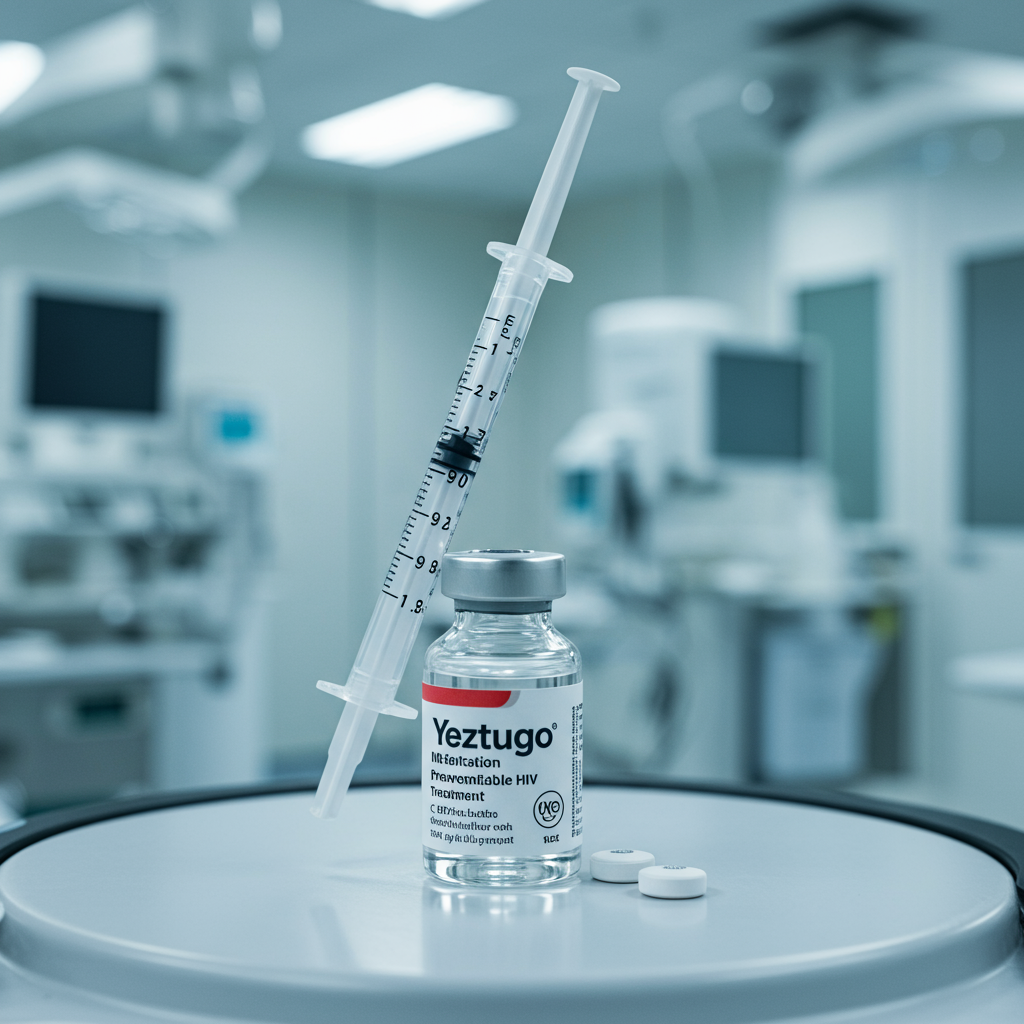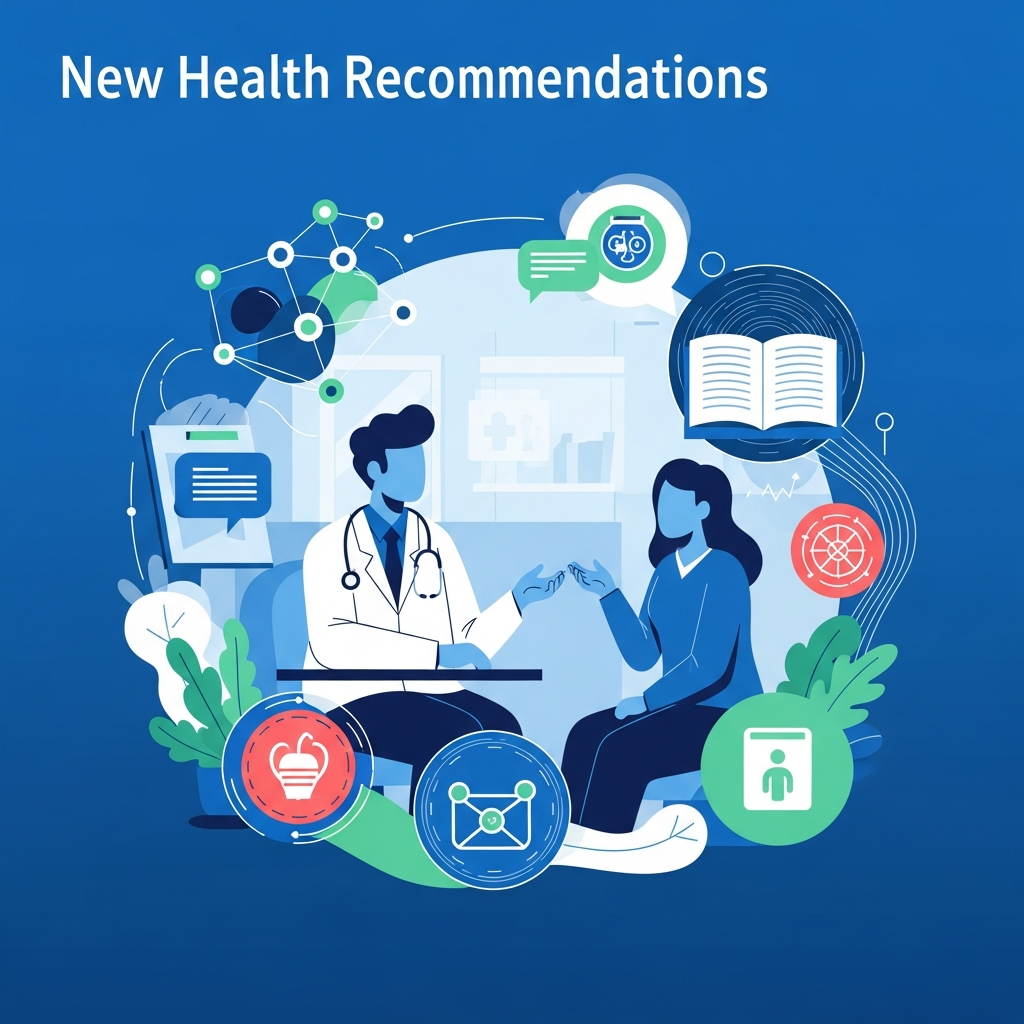A groundbreaking advancement in HIV prevention has arrived with the U.S. Food and Drug Administration (FDA) approval of lenacapavir, an injectable drug that requires administration only twice a year. Marketed under the brand name Yeztugo, this long-acting medication offers a powerful new tool in the fight against HIV, potentially transforming how individuals at risk protect themselves.
Approved on June 18 for use in adults and adolescents weighing at least 77 pounds who are at risk of acquiring HIV through sexual contact, Yeztugo is the first and only pre-exposure prophylaxis (PrEP) option available in the United States with such an infrequent dosing schedule.
Why Twice-Yearly Prevention is a Game-Changer
Current PrEP options typically involve taking a daily oral pill or receiving an injection every two months. While highly effective when used consistently, these regimens can present significant challenges related to adherence. Forgetting daily pills, facing stigma associated with taking medication, or navigating complex living situations like housing insecurity or substance use can all hinder consistent use.
Experts widely view the twice-yearly injection of Yeztugo as a potential “game-changer” because it drastically reduces the frequency of action required by the individual. This could significantly boost adherence rates, ensuring more people who need PrEP are consistently protected. It offers a simpler, less burdensome alternative that addresses these real-world barriers, potentially empowering individuals to manage their prevention more effectively, even allowing for discreet use without a partner’s knowledge, similar to injectable contraceptives.
Carlos del Rio, MD, co-director of the Emory Center for AIDS Research, noted in a news release that Yeztugo “could be the transformative PrEP option we’ve been waiting for,” offering the potential to “boost PrEP uptake and persistence.” Monica Gandhi, MD, MPH, a professor of medicine at the University of California, San Francisco, added that long-acting PrEP options have already shown higher retention rates compared to daily pills, and similar improvements are anticipated with Yeztugo.
Astounding Effectiveness in Clinical Trials
The FDA’s approval is based on compelling data from two pivotal phase 3 clinical trials funded by Gilead Sciences, PURPOSE 1 and PURPOSE 2. These trials demonstrated remarkable effectiveness:
PURPOSE 1 (cisgender women): Conducted with over 5,000 cisgender women in sub-Saharan Africa, this trial reported zero HIV infections among participants receiving Yeztugo, showing 100% effectiveness.
PURPOSE 2 (MSM and gender-diverse individuals): This trial involved more than 3,000 men who have sex with men and gender-diverse individuals, reporting only two HIV cases in the Yeztugo group, a 99.9% protection rate.
Across the trials, Yeztugo showed superior protection against HIV compared to existing PrEP therapies. Experts like William Schaffner, MD, professor at Vanderbilt University Medical Center, expressed “a great deal of confidence in it,” calling it potentially “the most effective medication we have to date” for HIV prevention. Science magazine recognized lenacapavir as its “Breakthrough of the Year” in 2024, underscoring its significance.
Yeztugo was generally well-tolerated in clinical trials. The most common side effects were mild to moderate reactions at the injection site, such as pain, swelling, or the formation of small lumps (nodules).
Addressing the Epidemic: A Powerful New Tool
Despite significant advancements, HIV remains a public health challenge. In 2023, over 100 new diagnoses occurred daily in the U.S., and an estimated 2.5 million U.S. adults need PrEP. Yet, only about one-third of eligible individuals are currently prescribed it. Underutilization is linked to stigma, lack of awareness, affordability issues, and access barriers, disproportionately affecting Black, African American, Latin/Hispanic populations, and those in the Southern U.S.
Yeztugo’s potential to mitigate these disparities by offering a more accessible and easier-to-adhere-to option is a major focus. It’s seen as a critical new tool to boost PrEP uptake, particularly among populations where current use is low. Mitchell Warren of AVAC hailed it as the “single best opportunity in 44 years of HIV prevention.”
Significant Challenges Remain: Cost and Access
While the scientific potential of Yeztugo is immense, its real-world impact hinges on overcoming substantial hurdles, primarily concerning its cost and widespread accessibility.
High Price Tag: The estimated annual cost for Yeztugo in the U.S. is around $28,218 per person, with reports indicating a cost of $14,109 per injection. This is significantly higher than the cost of generic oral PrEP options, which can be as low as $30 per month.
Insurance & Affordability: Experts express concern that insurers may favor cheaper alternatives or impose high copays, potentially limiting access. While Gilead states they aim for broad insurance coverage and are working towards $0 copays for commercially insured individuals, and have patient assistance programs including free medication for eligible uninsured individuals, the high list price remains a barrier, especially for low-income individuals who rely on programs like Medicaid. Potential cuts to Medicaid funding could further complicate access.
- Infrastructure and Funding Threats: Administering the injection requires a healthcare provider visit. Widespread rollout and access depend heavily on existing HIV prevention infrastructure, including public health clinics, state and local health departments, and non-profit organizations that educate the public and facilitate access. Experts warn that recent and proposed federal funding cuts to key programs like the CDC’s HIV prevention division, PEPFAR, and NIH research funding severely threaten this essential infrastructure, potentially undermining the drug’s ability to reach those who need it most, regardless of approval. A pending Supreme Court decision regarding the Affordable Care Act (ACA) could also impact the mandate for no-cost coverage of preventive services like PrEP.
- www.healthline.com
- time.com
- www.everydayhealth.com
- theconversation.com
- www.nbcnews.com
Important Considerations
It’s crucial to remember that while Yeztugo is highly effective at preventing HIV, it does not protect against other sexually transmitted infections (STIs). Consistent use of condoms remains essential for comprehensive sexual health protection.
Additionally, rare breakthrough HIV infections have occurred in individuals using lenacapavir, sometimes linked to virus mutations that confer resistance. This underscores the critical importance of regular HIV testing and medical check-ups to ensure the drug remains effective and to detect any potential resistance early.
Looking Ahead
Beyond the twice-yearly injection, Gilead is reportedly exploring options for even longer-acting versions, including a potential once-yearly injection and a self-injectable form, which could further improve convenience and access in the future. Regulatory bodies around the world are also reviewing Yeztugo for prevention, holding promise for a global impact, particularly if cost barriers can be overcome (generic production in high volumes could drastically reduce costs in low- and middle-income countries).
In conclusion, the FDA approval of Yeztugo represents a monumental scientific achievement in HIV prevention. Its twice-yearly dosing offers a powerful solution to long-standing adherence challenges, potentially transforming the landscape for many at risk. However, fulfilling this potential requires concerted efforts to overcome significant economic barriers related to its high cost and ensure that the essential public health infrastructure needed to deliver it effectively remains robust and well-funded. It is a vital new tool, but one whose ultimate impact depends on access and equitable distribution.




